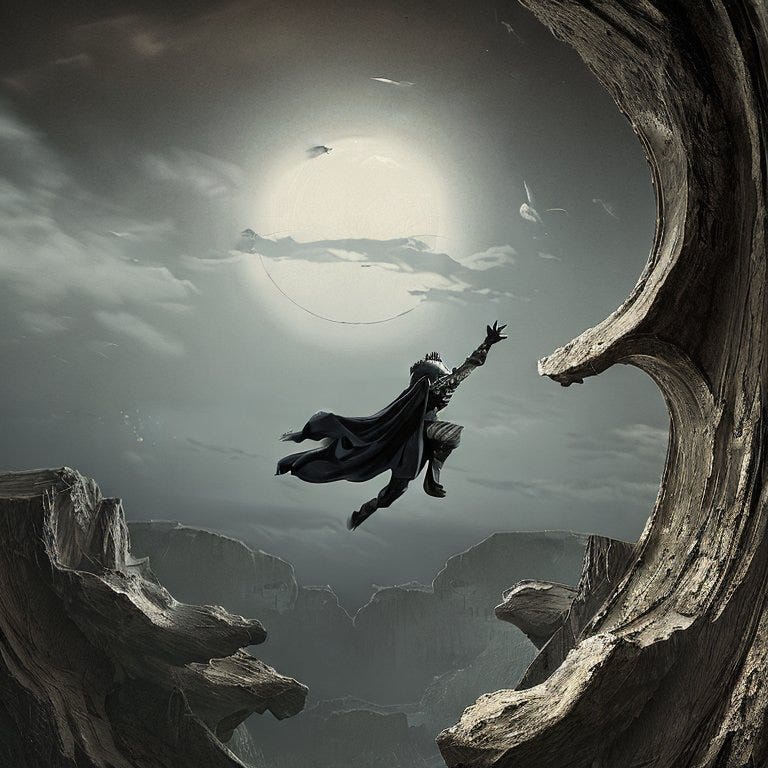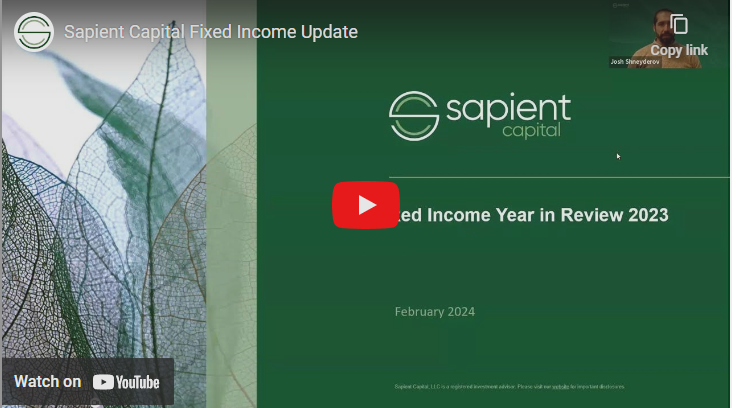The secret to value creation
[7 minute read]
If you’re someone who works primarily with your brain, how do you create something of enduring value?
How do you have a shot at being remembered after your death, and positively impacting the lives of others?
To answer the question it helps to ask: what kind of information is valuable?

My favourite investing podcast of the year so far was Chris Begg with William Green. At one point Chris said:
“I think all value creation is the source of reducing entropy in actually increasing information and therefore creating value.”
I wasn’t totally sure what that meant, but it wouldn’t leave my head. So I spent a couple of months working on it.
There’s a constant trend towards entropy: disorder and chaos. Things fall apart. But an opposing process converts chaos into order. One way is by converting disordered entropy into ordered “information.” Like a cloud condensing into a raindrop, the result is denser and more structured.
Some information is obviously more valuable than others. Tor Nørretranders’ remarkable book The User Illusion introduced me to the counterintuitive concept of “exformation.”
Nørretranders believes two of the sources of most value are:
- The volume of information discarded to produce something (“I read 60 books to bring you this short article”).
- The computational time spent producing something (“I spent four years thinking about it”).
Both methods convert a lot of entropy into more concentrated information, hence create a lot of value. We call highly-distilled information “wisdom.”
This is a very useful framework for assessing all of the information you’re consuming or creating.
If you’re hoping to create something of value, one way is to synthesize a lot of information in a way that preserves the key message. Another way is to spend a long time “working” on something.
Cryptocurrency mining is a process that creates new crypto coins like Bitcoin. Powerful computers use vast amounts of energy to solve complicated puzzles. When they solve these puzzles, they are rewarded with newly minted coins. These coins are then added to a universally-accessible digital ledger called a blockchain.
Do our minds work in a similar way?
I have a growing suspicion that the longer we ponder a question, and the more we struggle with it, the more likely we are to get an answer. This sounds ridiculous, yet it’s also obviously true. So many of the world’s greatest inventions and advancements were the result of years of focused effort and a sudden “download” of inspiration from.. somewhere.1 Are our powerful modern intellects like crypto mining rigs solving puzzles for the benefit of the whole network?
One of the key differences is that, in crypto, doing the “work” creates immediate economic value. But in the real world, it’s not always obvious that we get rewarded so tangibly. I have spent a significant amount of time over the last few years specifically talking to “stuck” middle-aged men. We have often forgotten our value outside of the professional structures that have made us comfortable. If we shift from working on something that no longer interests us, to something that does, will we still get paid? We worry, justifiably, that if we abandon these professional personas we will have no intrinsic value at all.
It would be an elegant redemption story for crypto if it helps provide a decentralized mechanism for people to realise their value, while shielded from the current corporate structures.
But for the meantime we still need to decide what to do. And that starts with asking the right questions.
A couple of weeks ago Y Combinator founder Paul Graham wrote a tremendous essay on curiosity as a driver of great work. [It was released on the same day as my piece on curiosity and coincidences.2 Hmm.] He wrote:
Curiosity is the best guide. Your curiosity never lies, and it knows more than you do about what’s worth paying attention to..
.. Curiosity is the key to all four steps in doing great work: it will choose the field for you, get you to the frontier, cause you to notice the gaps in it, and drive you to explore them. The whole process is a kind of dance with curiosity.
In short- your curiosity will tell you what work is valuable. I’m not sure the extent to which you can control your curiosity, but presumably some questions are worth exploring more than others.
Heroic Wrestlers
Throughout human history, the ideal leader has been associated with the process of mapping the world. Back in our tribal past, the adventurer ventures into the unknown jungle and discovered a fresh source of food. He mapped the territory for others. But in our new mental worlds, it’s someone who discovers a fresh insight that helps everyone. Their curiosity leads them to discover penicillin or general relativity. They turn entropy into valuable information.
Just as the ancient adventurer risked his body, the psychic adventurer risks his mind. In our terrified haste to pathologise mental illness, we seem reluctant to accept that fact. The more valuable the insight, often the more severe the dissonance and suffering required to produce it. A significant number of great thinkers had agonizing periods of “creative illness” that plunged them into depression and madness.
In his remarkable new lecture series, Brett Andersen argues that the “heroic” ideal constantly, willingly subjects themselves to psychological discomfort in order to better model the world. As Paul Graham writes “unanswered questions can be uncomfortable things to carry around with you.” It’s as if we’re sacrificing the awesome computing power of our brains to solve important problems for the benefit of the whole network.
Graham’s phrase that great work involves “noticing gaps” in the current map is particularly interesting. He has previously argued that the very best entrepreneurs can look at the present and see what inventions need to exist, but don’t (the AI podcast below is a good example). Visionaries are driven by a nagging sense that something is deeply wrong or missing from our entire picture of the world.
A lot of spiritual literature talks about how the end goal of the individual is “co-creating with the universe.” And I’ve never really had a good idea of what that meant. In this context it might get a little clearer. Your curiosity, the present manifestation of an ideal future you, calls you towards asking certain questions. By willingly struggling with them you bring something new into the world; a fresh insight that turns disordered entropy into valuable information. In a very real way, the energy of your conscious effort “works” against death and destruction. What you pay attention to, and think deeply about, really matters.
I’m not sure I have it exactly right yet. But it’s a beautiful idea.
Moreover- although the path is wickedly hard, it’s an ongoing process that feels intensely rewarding and meaningful. If doing great work starts with asking the right questions, I’d ponder:
What question do I have to ask, where knowing the answer also helps others?
Look into the source of every skill or invention and
There you’ll find that it’s root and origin was revelation
Humans learned them all, each single one, from the prophets-Rumi
Related Reading & Listening
- Read. How To Do Great Work by Paul Graham (80 minute read).
- Why Read? It’s long but it’s is an absolute classic. I’d especially recommend getting it in front of your kids or young adults trying to find their way in the world.
- Listen. Brian Roemmele with Jim O’Shaughnessy on Infinite Loops (2 hour 11 minute listen).
- Why listen? In keeping with today’s piece, I believe Brian is a true visionary, a prophet of sorts, in that he sees things others don’t. In a field as over-saturated with opinions as Artificial Intelligence, it was rare to hear someone with totally different ideas and angles. He has been developing two products, the first is a personal offline AI called the “Intelligence Amplifier.” The second is the “Wisdom Keeper.” This is a repository of questions and stories that helps preserve the wisdom of our parents and elders. On my first Infinite Loops appearance I stressed to Jim that I believe preserving our parents’ memories and stories is probably the most important thing we consistently fail to pay enough attention to. I am also grateful to Brian for introducing me to the book in this piece, The User Illusion.
1 This is one reason I’ve been so interested in the concept of the universal “Akashic” information field. Or concepts like it.
2 Amusingly, I condensed Graham’s 80 minute article into an 11-tweet thread of my favourite insights, and it generated over 600,000 views. Which is a neat little demonstration of the value of exformation…


